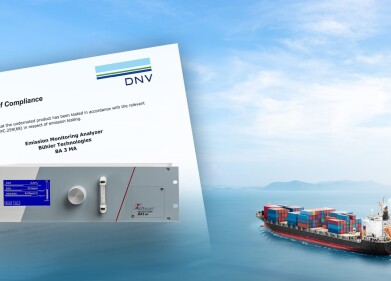Measurement and testing
What is the Relationship Between Lubrication and CO2 Emissions?
Dec 08 2022
There is a growing demand for lower carbon emissions along the supply chain and beyond simple decarbonisation, all sorts of ideas are being explored to mitigate current emissions by improving processes. When it comes to areas of improvement that have broad-ranging applications for the widest variety of industries, you can do no better than to focus on friction. The problem of friction is a universal in the developed world and friction consumes energy, increasing the amount of fuel required to power various machineries and motors. As it becomes more and more imperative that smaller amounts of carbon-based fuels are burned, reducing friction may become an integral part of mitigation strategies. In a broader sense, it’s certainly not economic to produce any form of energy only to waste significant amounts of it.
Furthermore, friction is a significant factor in the break-down of assets in industry, ever-decreasing efficiency until machinery is eventually junked. High levels of friction, therefore, greatly increase all forms of waste, accelerating the turn-over of assets and everyday detritus. Indirectly, then, friction puts a strain on resources at a time when longevity is paramount, and firms need all the money they can get to raise funds for decarbonisation. In a number of ways, then, significant friction can increase firms' output of waste, decrease longevity, and prevent them from achieving emissions targets,
It is therefore imperative that tribology is used to reduce friction in all industries. Tribology is a complex and multidisciplinary field of study that involves researchers from many different academic backgrounds, including mechanical engineering, manufacturing, materials science, chemistry, physics, mathematics, computer science, and more. Advances in tribology are often made through collaboration among researchers from these different fields, and as the profile of tribology is raised by new research into its role in mitigating emissions, it seems reasonable that innovation will occur.
That’s all well and good, you may be thinking, but surely the production processes required to produce high-quality lubricants and greases do emit carbon dioxide? Whilst this does put a slight dampener on enthusiasm, decarbonisation has been proceeding swiftly in this industry. Last year, for instance, Shell unveiled a range of carbon-neutral lubricants for consumer vehicles, heavy-duty diesel engines and industrial applications, an attempt to compensate for the firm’s other emissions. In-house researchers claim this would amount to a saving of 700,000 tonnes of carbon dioxide emissions every year, which they say is equivalent to taking approximately 340,000 cars off the road for one year. Since 2016, Shell has reduced the carbon-intensity of its lubricant manufacturing by over 30%, and over 50% of electricity used in its blending plants now comes from renewable sources.
If the necessary products can be manufactured in a more sustainable way, then, lubrication can play a vital role in reducing the consumption of resources and carbon emissions by enhancing the lifespan of equipment and the comprehensive sustainability of operations. By applying the right tribological solutions, it is possible to reduce friction and save energy without sacrificing function. This reduction in friction can prolong the lifespan of the lubricated objects and help limit or reduce emissions by getting more from the same resources. Proper lubrication, condition monitoring, reparability, and the use of wear-resistant materials and coatings can all help minimize friction and extend equipment lifespan. By taking advantage of tribology, it is estimated that energy losses could be significantly reduced, potentially saving up to 3.1 gigatons of CO2 emissions.
Digital Edition
PIN 26.1 Feb/Mar 2025
March 2025
Analytical Instrumentation - Elemental Analysis for Quality and Process Control at Refineries, for Lubricants and Wear Metals in Engine Oils - Synthetic Lubricants: New Developments - Scaling...
View all digital editions
Events
Apr 14 2025 Moscow, Russia
Apr 15 2025 Moscow, Russia
Apr 22 2025 Hammamet, Tunisia
Apr 22 2025 Kintex, South Korea
Solar & Energy Storage Summit 2025
Apr 23 2025 Denver, CO, USA



















